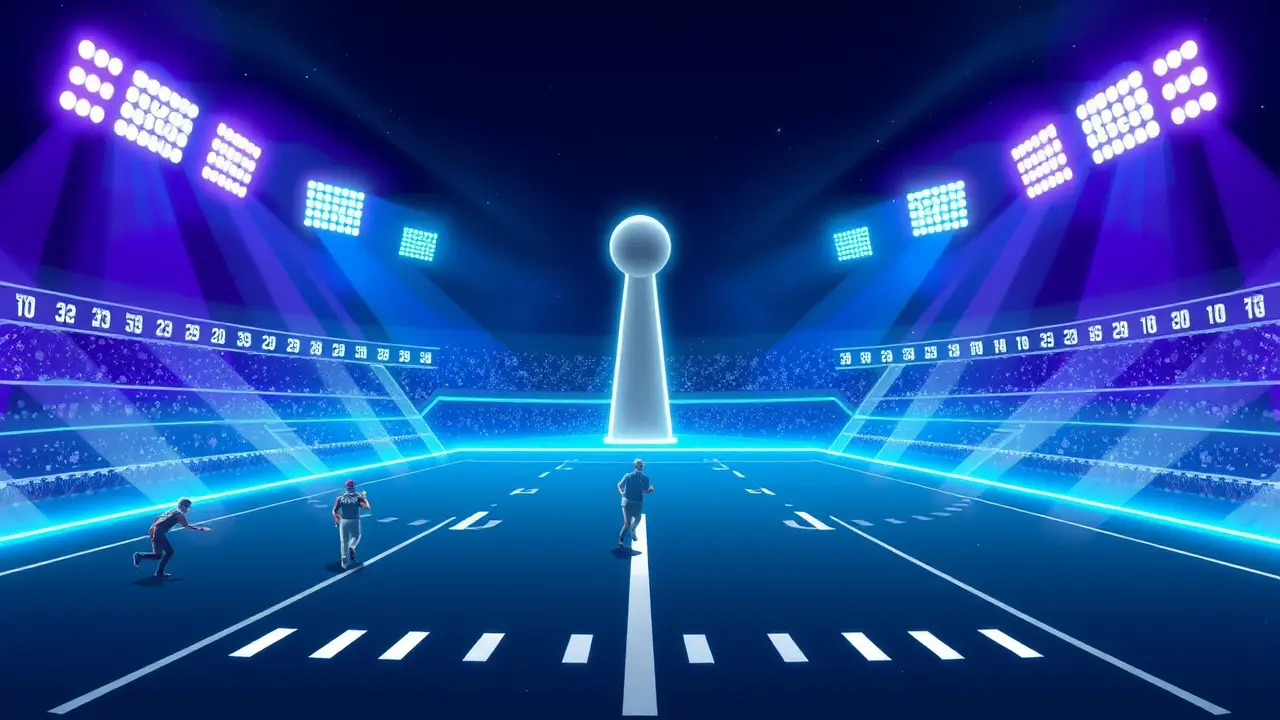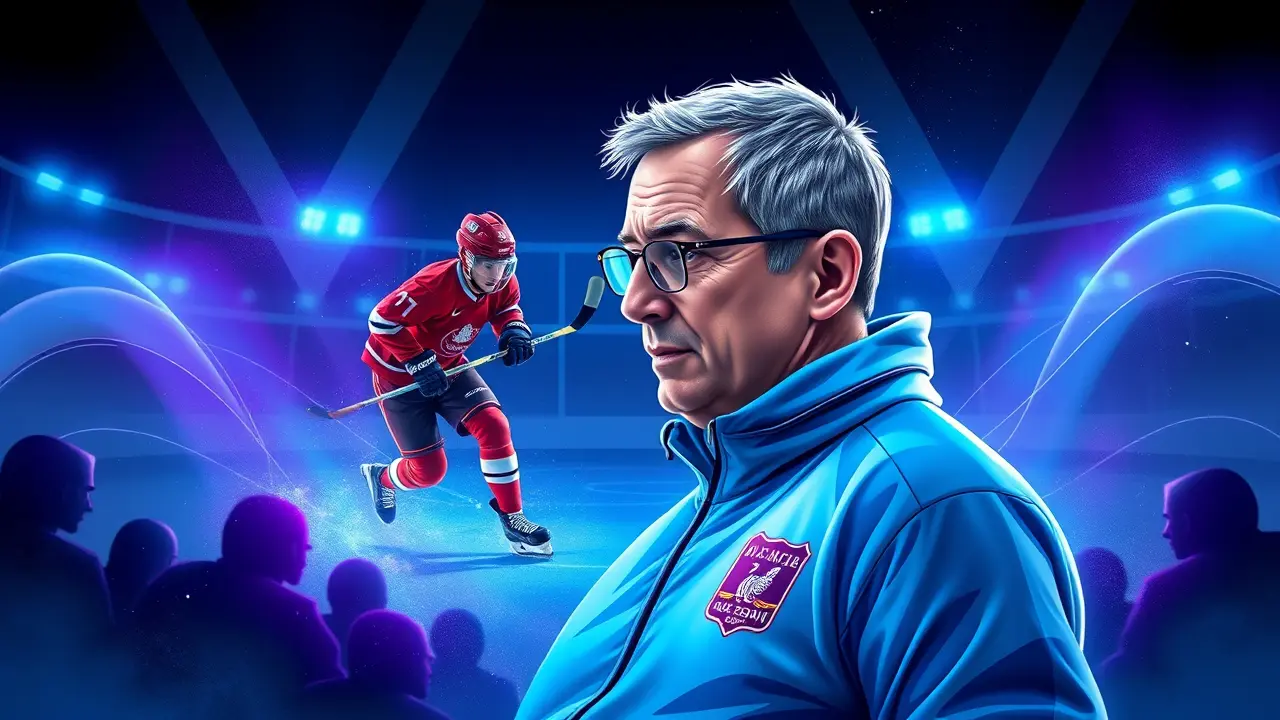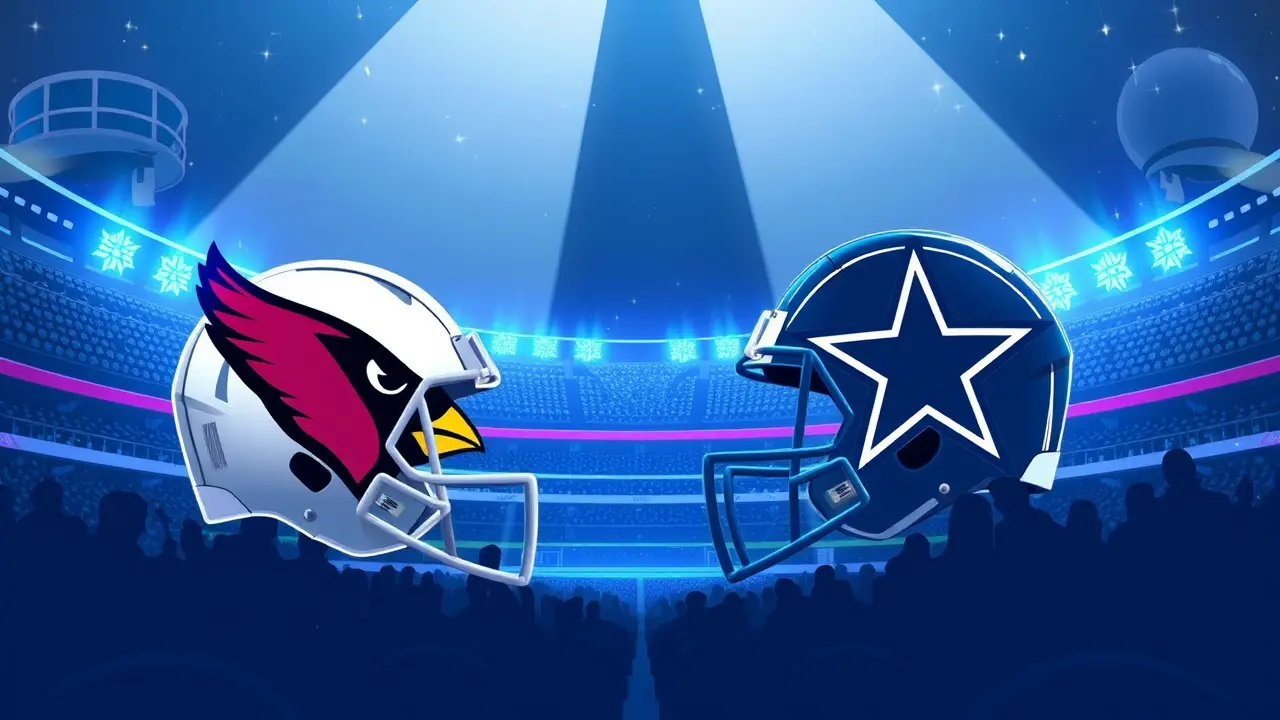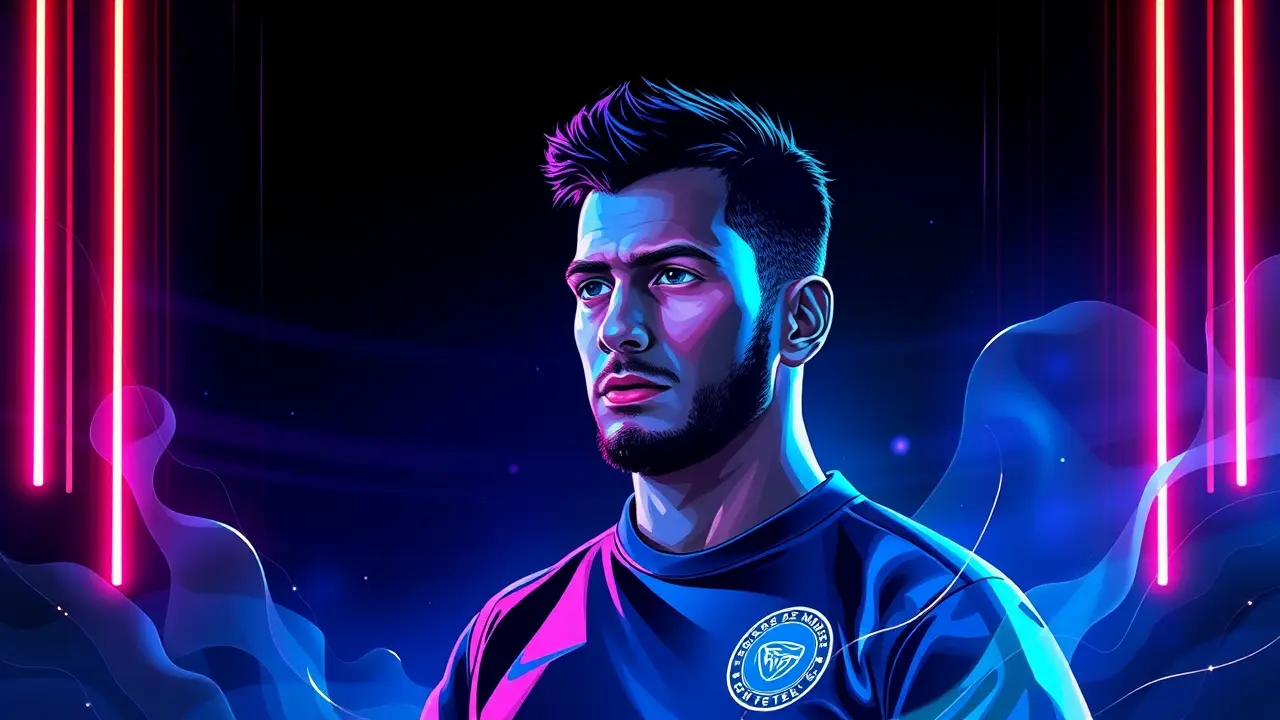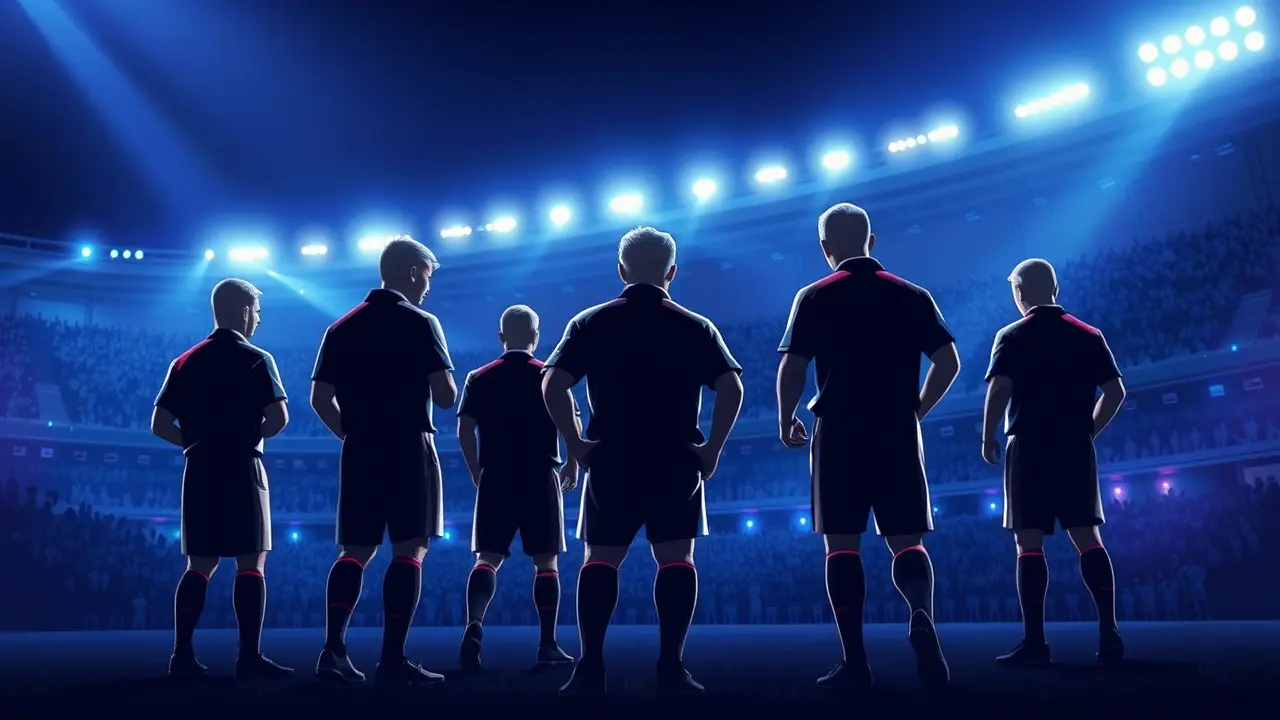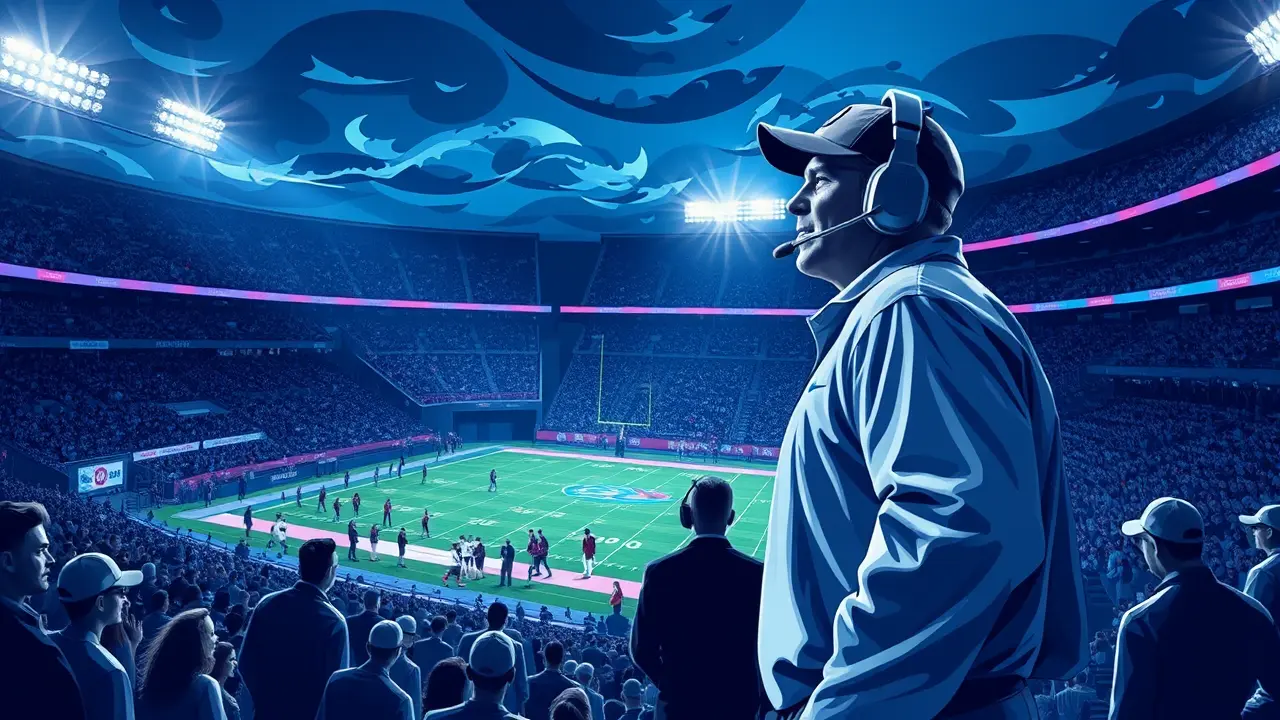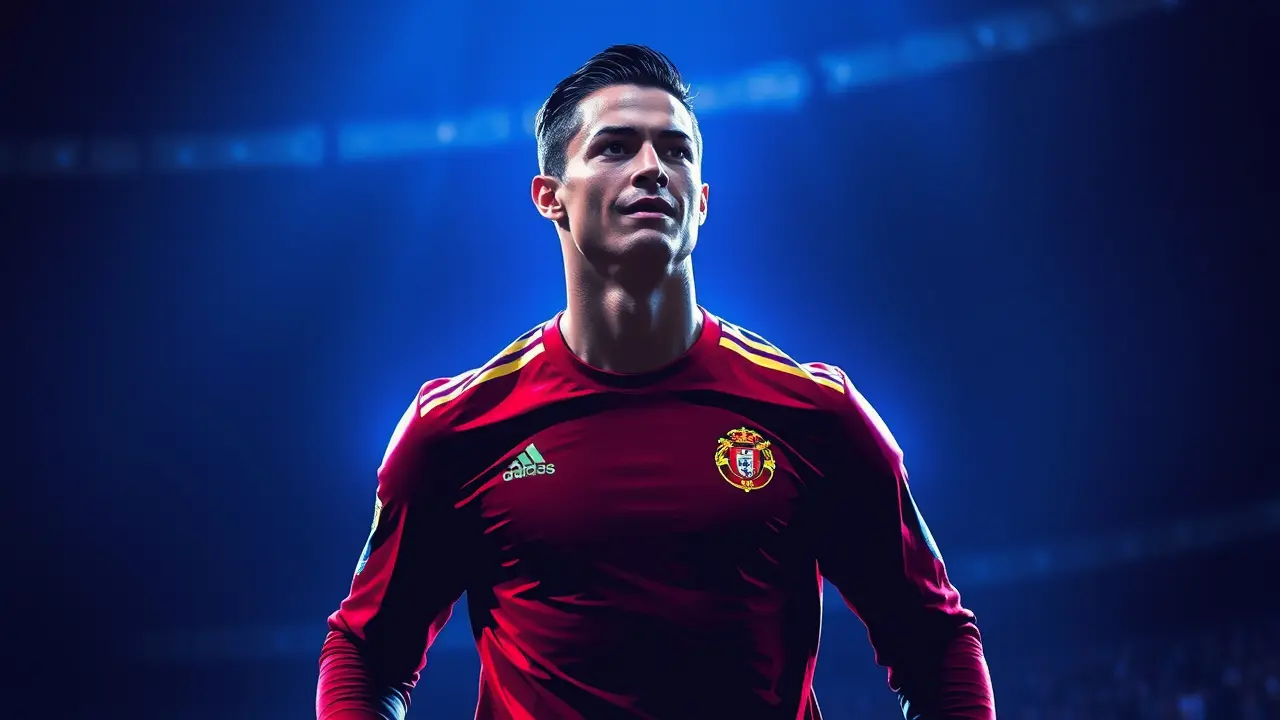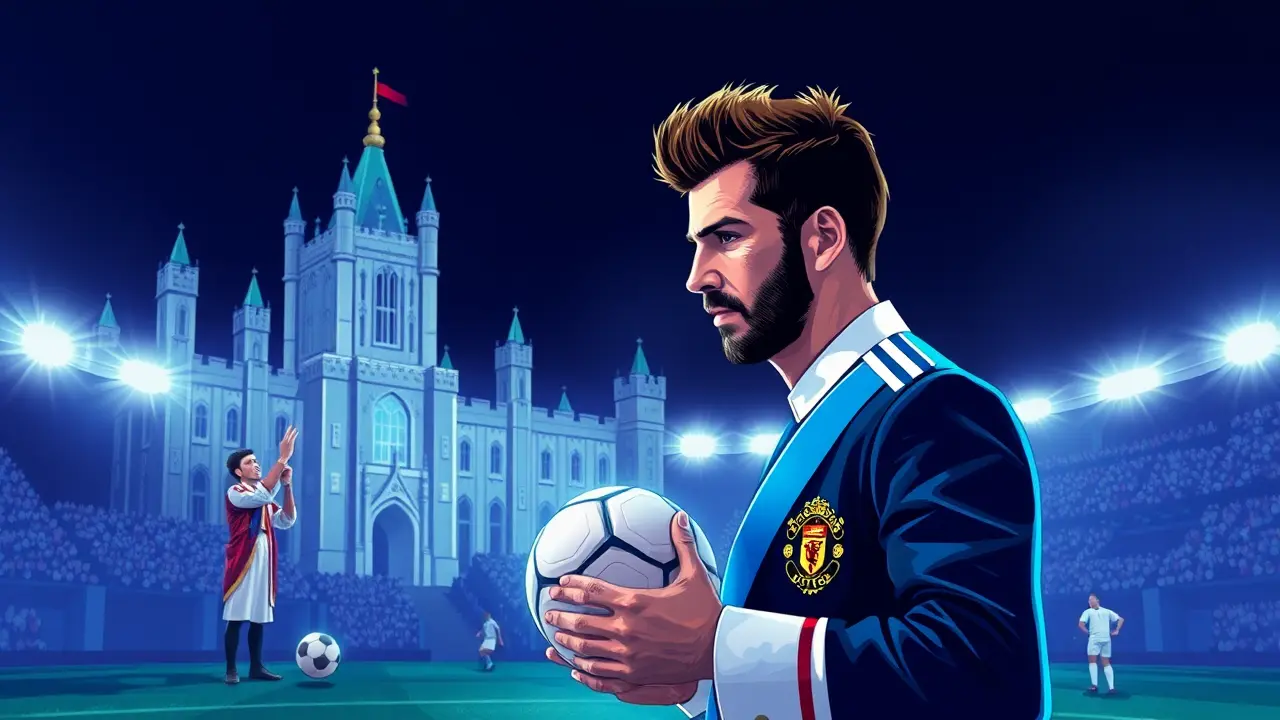
SportfootballPremier League
David Beckham Knighted by King Charles at Windsor Castle.
JA
Jack Turner
14 hours ago7 min read6 comments
In a ceremony that felt as momentous as a last-minute Champions League winner, David Beckham, the boy from Leytonstone whose right foot became a global phenomenon, finally received his knighthood from King Charles III at Windsor Castle, an honor that cements his journey from Manchester United prodigy to a national institution whose impact transcends the beautiful game. For those of us who’ve charted his every pass and free-kick, this wasn't just a formality; it was the crowning achievement in a career that can be statistically compared to the very legends he once emulated—think of his pinpoint crossing accuracy, which often rivaled the assist numbers of a Kevin De Bruyne, or his relentless engine on the right flank, a work rate that would make a modern-day James Milner nod in respect.Beckham’s contributions to sport are the stuff of Premier League folklore: from that halfway-line goal against Wimbledon that announced his arrival, to his leadership in United’s historic 1999 treble-winning campaign, where his deliveries into the box were as precise as a surgeon’s scalpel, creating chances that led to titles and etching his name alongside club icons like Bobby Charlton and Eric Cantona. But what truly sets Beckham apart, and why this honor from the King feels so richly deserved, is how he leveraged his fame into a force for good through his charitable endeavors, particularly his work as a UNICEF Goodwill Ambassador and his own foundation, which has championed children’s rights and sports programs in underserved communities with the same dedication he once showed on the training pitch.This knighthood also serves as a poignant full-circle moment, coming from a monarch who has himself navigated a transition into a new role, much like Beckham evolved from a player whose hairstyles made headlines to a statesman for British sport and philanthropy, a journey that included overcoming public scrutiny after his 1998 World Cup red card—a setback that would have broken lesser players, but which he used as fuel to come back stronger, earning the captain’s armband for England and leading the Three Lions with a passion that inspired a generation. The broader context here is significant: in an era where athletes are often criticized for being mere brand ambassadors, Beckham’s knighthood reinforces the value of longevity and genuine service, drawing parallels to other sporting knights like Sir Steve Redgrave or Sir Mo Farah, who similarly blended elite achievement with profound societal impact.Expert commentary from sports historians suggests that this recognition solidifies Beckham’s legacy not just as a footballer, but as a cultural diplomat who helped bridge gaps through sport, whether by playing for clubs in Madrid, Milan, and Los Angeles, or by using his platform to advocate for causes like malaria prevention and disability inclusion. The possible consequences are multifaceted: for British football, it elevates the standard for what it means to be an ambassador of the game, potentially inspiring current stars like Marcus Rashford to see their off-field activism as integral to their legacy, while for the monarchy, it underscores King Charles’s intent to honor figures who embody modern British values of resilience and global citizenship. Analytically, one could argue that Beckham’s knighthood is a masterstroke in narrative redemption, transforming him from a tabloid fixture into a respected elder statesman, a lesson in how to pivot a career with grace and purpose, much like his iconic free-kicks that curved past walls to find the net—seemingly effortless, but built on years of relentless practice and an unwavering belief in the power of second chances.
#David Beckham
#knighthood
#King Charles III
#charity
#football
#featured
Stay Informed. Act Smarter.
Get weekly highlights, major headlines, and expert insights — then put your knowledge to work in our live prediction markets.
Related News
© 2025 Outpoll Service LTD. All rights reserved.
